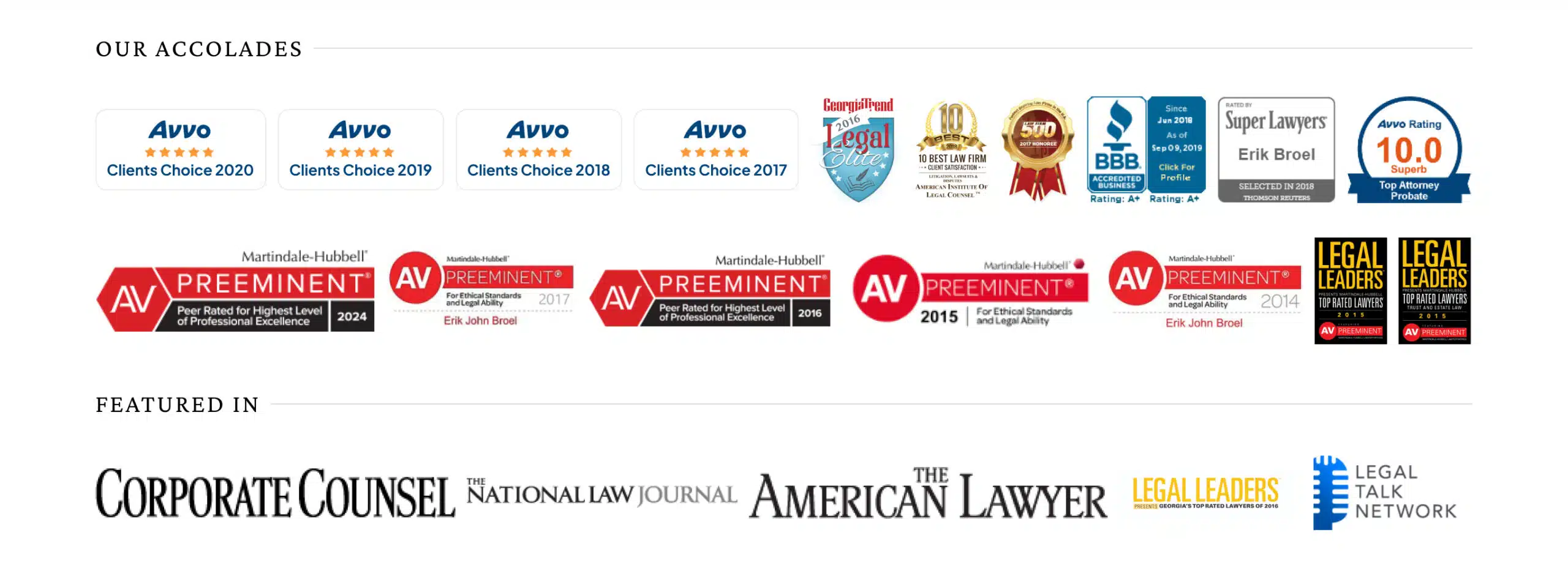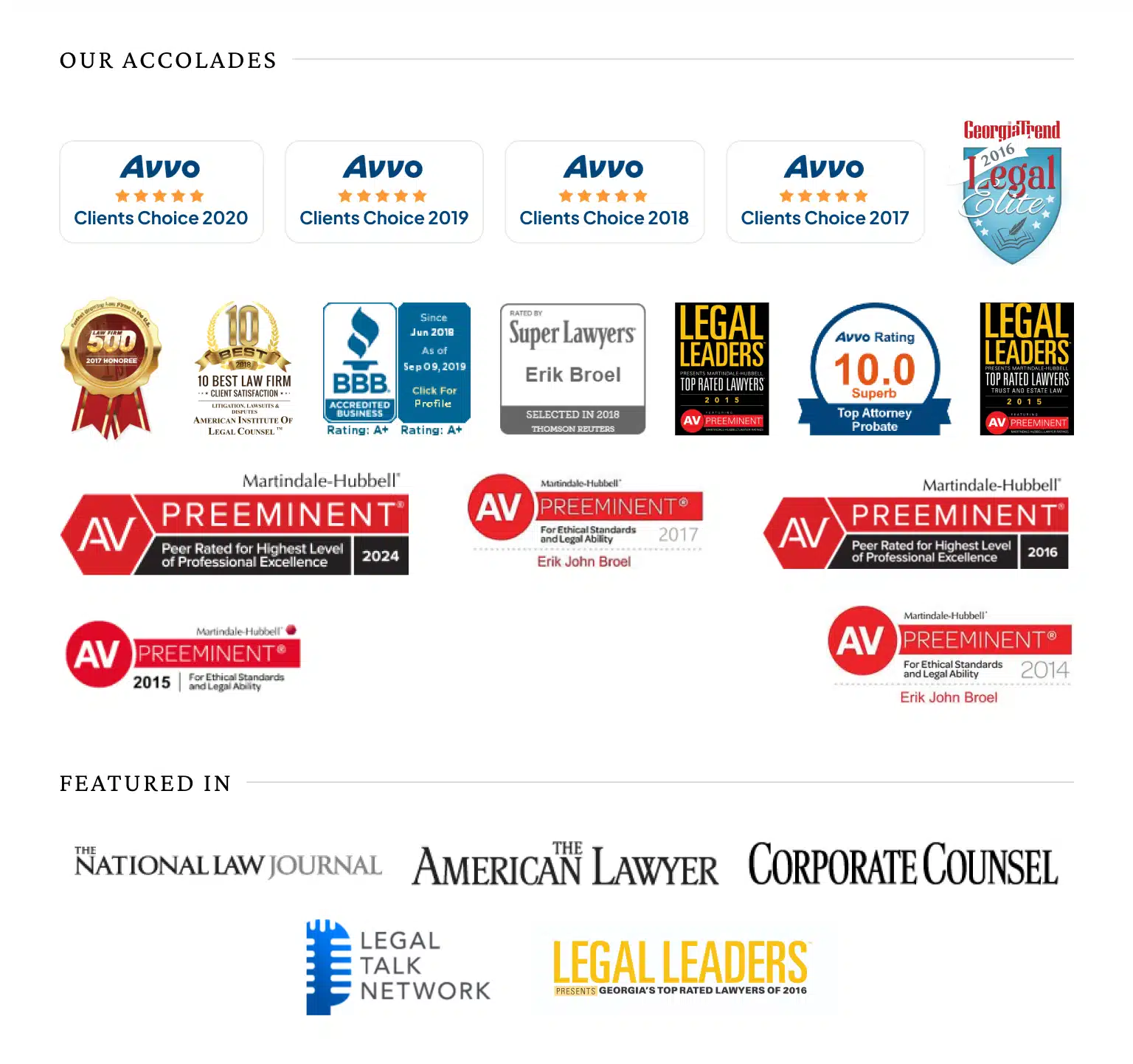Discovering that someone is stealing from a loved one’s estate could be one of the worst nightmares a grieving family could experience. Not only does theft damage trust and relationships, but it could also delay the distribution of inheritance. What can you do? How to recover stolen inheritance?
If you suspect that someone has committed theft from the estate, your best step is to consult a probate lawyer.
Can anyone take anything from the estate? The answer is no. Generally, taking anything from the estate, particularly probate assets, requires permission from the court.
However, someone needs to oversee the estate, and who that person is will depend on the scenario.
The deceased will likely name an executor to manage the estate, but even then, that person has no authority to take anything from the estate. The court must first validate the will through a process called probate.
After the will is validated, the court will appoint the executor over the estate through a court order. They must then follow the powers outlined in that court order.
Once appointed, the executor can gather assets, pay off creditors, and distribute assets, but only as specified in the will and according to Georgia probate laws. Non-probate assets, on the other hand, go directly to the beneficiaries listed on the asset.
If the decedent did not leave a will, no one has the authority to take anything from the estate. To manage the estate, someone has to request to become an administrator and be appointed first by the court.
Like the executor, the administrator must follow Georgia probate laws and court orders issued by the Probate Court.
Non-probate assets, which often have designated beneficiaries, are excluded from the estate.
The executor and administrator (collectively known as a personal representative) have limited powers in Georgia.
They can only collect and preserve assets, settle creditor claims, and distribute assets according to the will and GA law.
Anything outside those powers requires court approval, such as selling an estate property or exchanging an asset for another.
A trust is a legal agreement where someone (grantor) gives their money or property to another person (trustee) to manage. In this case, the trustee is the person the grantor allowed to manage their trust affairs.
The terms and conditions of trusts are unique to the person who created them. It should outline the trustee’s authority regarding the gathering and dispersing of the estate’s assets.
Unlike a will, you do not have to file a trust in court, making it crucial to be extra vigilant.
If you notice the trustee is violating the trust, stay alert and seek legal action if needed. You can speak with a trust litigation attorney if you suspect a breach of duty is happening.
The Probate Court determines who will handle the estate affairs based on whether there is a will.
If there is a will, the executor named in it will be appointed to take charge of estate administration. If they are unable or unwilling to serve, a successor executor may be named to serve.
Should none of the named executors be able to serve, the family or the court may nominate someone else as executor.
In an intestate situation (without a will), the family can nominate someone to become the administrator. If they cannot agree on an administrator or no one would take the role, the court may assign an administrator to handle the estate.
Recognizing red flags from someone’s actions may alarm you, but it is important to remain level-headed. If the personal representative has not yet been appointed over the estate by the court, here are your options:
If the person you suspect is the executor named in the will, your first and most crucial step is to contact a skilled probate attorney. You can discuss objecting to their appointment over the estate.
Some wills may contain clauses that state anyone who contests may face disinheritance. Therefore, we recommend having an attorney assess the situation first and decide if contesting is your best option.
If the situation is urgent, you may also attempt to request a temporary administrator to gather and protect the estate assets. This person typically has limited powers and will manage the estate until the court appoints a permanent personal representative.
Whether the person is the executor or not, you can still request the court to appoint a temporary administrator.
If the deceased designated you as executor, your next best step is to get the will probated so that you can be appointed for the role. Having authority over the estate allows you to work with the court to hold the person accountable for stolen property.
If someone else is named as executor, find out whether they intend to serve or prefer to step down from the role.
When there is no will, managing the estate can be more complicated. The family must first select a permanent administrator to handle the estate, which can take some time. In the meantime, requesting a temporary administrator is an excellent way to protect the estate.
Having an official administrator as soon as possible is crucial because they have the authority to pursue the individual who stole assets from the estate. They can access financial documents and other documentation that can help determine what assets have been manipulated. Hiring a forensic accountant may also help identify any irregularities in the estate’s financial records.
If the suspected person tries to become the administrator, do not sign any paperwork without consulting a probate attorney. The attorney can advise you on the best course of action and help protect the estate from further harm.
If the court has appointed the person you suspect, there are steps you can take to protect the assets. Your first option is to try to resolve the issue amicably by communicating with the administrator.
If the diplomatic approach does not work, you can send a demand letter requesting a full estate accounting. If the suspected individual refuses, you can file this request with the Probate Court.
A hearing may become necessary if the parties cannot resolve the conflict before the hearing date. During the hearing, the court will review the evidence and determine whether the personal representative has violated any laws.
If all else fails, you can attempt to request to remove the personal representative. This process can be complex and requires the help of an experienced attorney.
Recovering stolen items from an estate may seem daunting, but it is not impossible. Here are some ways you can attempt to recover the assets depending on their type:

If the court finds that someone has fraudulently executed the title, they may declare it invalid. However, recovering real estate assets can be complex and require legal expertise.
Recovering personal belongings (jewelry, guns, coins, etc.) can be challenging because tracking down the buyer once they are sold can be difficult. The best approach is to keep detailed records of all the estate’s belongings to aid in investigations if someone steals them.
Whether the stolen asset is financial, real estate, or personal property, seeking legal advice from an experienced estate litigation attorney can help. They are well-versed in inheritance theft laws and can guide you through recovering lost assets.
Someone acting as a personal representative without court authorization may be considered an executor de son tort. This term refers to someone who wrongfully acts as an executor or administrator without lawful authority.
If they act in bad faith with estate property, they may be held liable for twice the property’s value.
Heirs and beneficiaries who suspect someone has stolen from the estate may consult a criminal law attorney to understand their options. Pursuing a criminal case against the individual could be one of them.
Anyone who engages in inheritance theft, whether executors, trustees, beneficiaries, or others, may face civil or criminal charges. We recommend seeking assistance rather than determining without specialized help whether theft results in criminal or civil penalties. It is best to seek legal advice if you suspect someone is stealing from the deceased’s estate.
If the appointed personal representative is found guilty of estate mismanagement, they may be removed from their position. Estate mismanagement is a breach of fiduciary duty, which is a legal obligation to act in the estate’s best interest.
If a personal representative fails to carry out their duties, the court can hold them liable for any harm caused to the estate. For example, they may be ordered to return the funds or property to the estate, pay damages, or cover legal fees to the heirs or beneficiaries.
It is essential to understand that a personal representative’s role is to put the heirs’ and beneficiaries’ interests above their own. If you suspect estate mismanagement, contact an estate litigation attorney immediately to understand your options and how to best protect the estate.
Dealing with inheritance theft is complex and even more challenging to accept if the suspected person is a family member or close relative.
Whether you need to know how to recover stolen inheritance or need help safeguarding your loved one’s estate from theft or recovering already stolen assets, call our office at (770) 796-4582. Our experienced attorneys can guide you in keeping the estate intact.
Disclaimer These websites have not been reviewed by Georgia Probate Law Group and are not endorsed or even recommended by Georgia Probate Law Group. These websites are additional resources that you can use to further your general education on this topic.
Disclaimer: The information above is provided for general information only and should not be considered legal advice. Our probate attorneys provide legal advice to our clients after talking about the specific circumstances of the client’s situation. Our law firm cannot give you legal advice unless we understand your situation by talking with you. Please contact our law office to receive specific information about your situation.
Compassionate listeners, knowledgeable guidance. Schedule a free consultation with our team and let us help you and your family with your legal concerns.
GET IN TOUCH 770-796-4685Learn Important Probate Essentials, including key things that go wrong in an estate, how to prevent them, and what to do if they happen.



© 2025 Georgia Probate Law Group by Broel Law, LLC. All rights reserved.